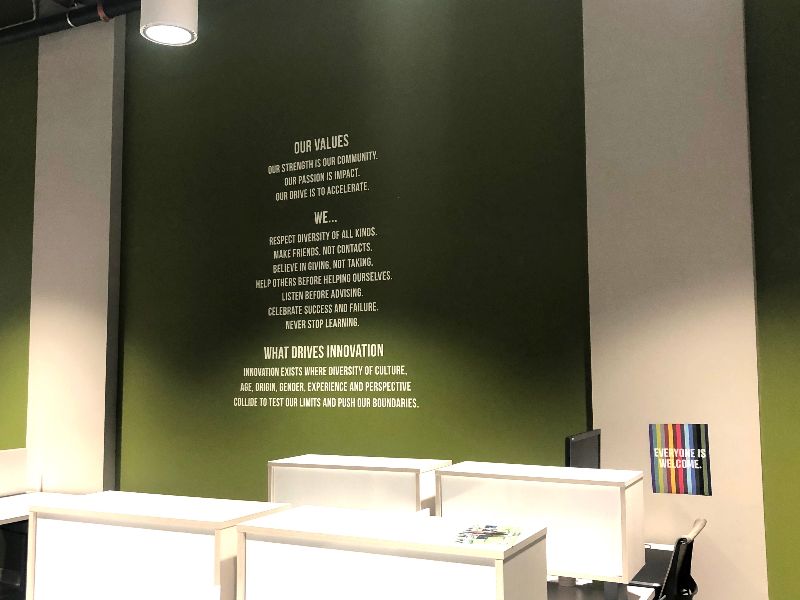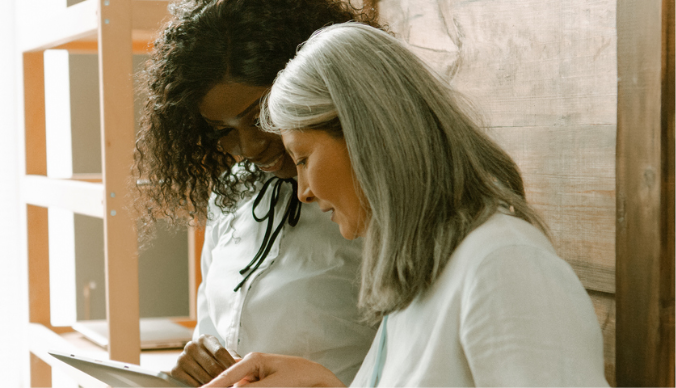Last year, six finalists—including three current Davidson students and three recent graduates—competed in the 2019 Davidson Venture Fund Pitch Competition (DVF), an annual event hosted by The Hurt Hub@Davidson. Winners of the competition are awarded a $25,000 seed investment to start their for-profit ventures. Contestants were given five minutes to pitch their ideas to a panel of investors and entrepreneurs, followed by a round of questioning from the panel. Their ideas ranged from an app to construct diet plans for cancer patients to a mobile beauty bar. After deliberating, the judges selected Shea Parikh ‘16 for his company Jam, which offers an app to help companies design face-to-face social interactions between employees, which leads to better relationships, connectivity and productivity across the firm.
After winning the 2019 DVF, the Davidson founder relocated to the greater New York City area to continue building Jam. Last month, Juan Diaz Mercado ‘22 checked in with Parikh to learn about Jam’s inaugural year.
Parikh credits the generous investment from the DVF as the catalyst for the company’s development: “[the] direct investment [from DVF] helped give Jam the resources to hire engineers to continue building the product.” Beyond raw capital, he recognizes how the DVF “provided a platform to engage with Davidson alumni.” Parikh insists developing these connections were essential to Jam’s first steps: “establishing these connections…provided invaluable advice on how to navigate the early days of trying to get a company off the ground.”
However, Parikh reports that communications with the consumer significantly contributed to Jam’s growth over the last year. He writes that at the beginning of the year, Jam started “simply” as a “culture-building tool” which “uses metadata from communication networks…to help employees find the people and information they need.” Over the past year, the company pivoted its business model: “we learned there was value in [culture-building]…value [that] companies were willing to pay for. [So] over the past year we’ve learned we were dancing around a much bigger opportunity.” Through conversations with the consumer, Jam “moved away” from an optional culture-building tool to “an internal communications tool…for larger companies.”
According to Parikh, this dialogue with the customers—the “getting feedback, positive or constructive”—was his favorite experience. “It’s largely humbling because you realize customers don’t actually want the thing you think they want…with every new conservation, I think we take one step closer to finding that fit which is very exciting.”
But perhaps the defining moment of Jam’s inaugural year would be the response to the COVID-19 pandemic. The ongoing pandemic—which has closed down businesses across the nation and forced many to work from home—made Parikh realize the importance of interpersonal communication. Accordingly, he made it Jam’s mission to maintain cross-team communication under these unprecedented conditions: “COVID has made it painfully clear that remote work is here to stay. Going forward, Jam can play an integral part in helping employees access the information and the people they need to do their best work.”
Parikh concluded the interview with some advice to future DVF applicants: “Absolutely apply [for the DVF]…If you have an idea you’re excited about and you’ve done some work to validate it, the worst thing that can happen is you don’t win. On the upside, you receive some capital that can jumpstart growth and you get a platform to connect with the Davidson alum base.”
Although the 2020 DVF Pitch Competition scheduled for late April was postponed due to COVID-19, The Hurt Hub looks forward to rescheduling it when it is safe for the community to return to campus.
The author, Iain Anderson, would like to thank Juan Diaz Mercado ‘22 for sharing his interview notes.





